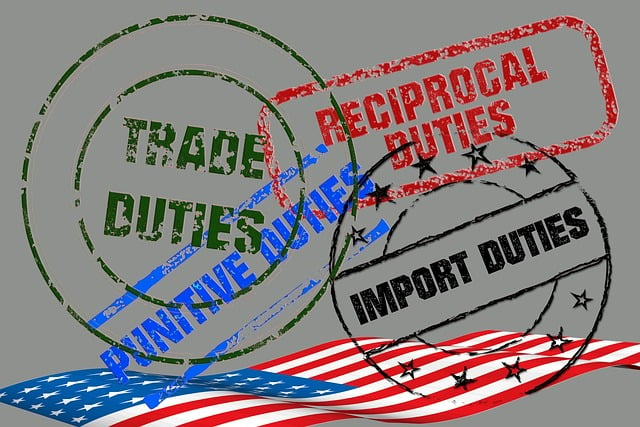Child support involves fulfilling legal duties to ensure a child's well-being post-separation, encompassing financial contributions for basic needs and emotional nurturing. Both parents have child support rights and responsibilities, crucial for healthy co-parenting and the child's development. Legal duties support include financial contributions based on income, while parental obligations involve open communication and involvement in significant decisions. Understanding these support responsibilities is key to fostering stability and happiness for children, regardless of parental roles or custody arrangements. Adhering to agreed-upon payment schedules and maintaining financial transparency are essential for a child's security, with the ability to modify agreements under specific conditions.
Navigating child support cases involves a delicate balance of rights and responsibilities for all parties involved. This comprehensive guide delves into the key aspects of child support, offering a clear legal overview. From understanding parental obligations to financial considerations and enforcement, we explore both the custodial and non-custodial parent’s roles. Gaining a thorough grasp of these rights and duties is essential for ensuring a fair and just outcome for all, fostering stability in every family dynamic.
- Understanding Child Support: A Legal Overview
- Parental Rights and Obligations in Support Cases
- Key Responsibilities for Non-Custodial Parents
- Custodial Parents' Rights and Duties
- Financial Considerations: Calculating and Paying Support
- Enforcing and Modifying Child Support Agreements
Understanding Child Support: A Legal Overview

Understanding child support is crucial in navigating the complex landscape of family law. At its core, child support refers to the financial contribution made by a parent (or both parents) to ensure the well-being and maintenance of their children after separation or divorce. It involves recognizing and fulfilling legal duties towards one’s offspring, which are often outlined in specific laws and regulations.
This legal overview highlights the key rights and responsibilities that come into play. Parental obligations regarding support include providing for a child’s basic needs such as food, clothing, shelter, education, and healthcare. In many jurisdictions, these obligations are translated into financial duties, where non-custodial parents are required to contribute a portion of their income towards meeting these requirements. Understanding one’s rights and responsibilities is essential for ensuring fair outcomes in child support cases, fostering a healthy environment for both parents and children involved.
Parental Rights and Obligations in Support Cases

In child support cases, both parents have fundamental rights and responsibilities that are legally enforced to ensure the well-being and financial security of their children. Understanding these rights and obligations is crucial for a healthy co-parenting relationship and the overall development of the child. The primary focus lies in the legal duties of support, which encompass both financial contributions and emotional nurturing.
Parental rights regarding child support involve ensuring access to essential resources for their offspring’s growth. This includes providing for basic needs such as food, clothing, shelter, and healthcare. Obligations, on the other hand, entail meeting these requirements through a combination of direct care and financial support. A clear understanding of these responsibilities fosters a cooperative environment where both parents actively contribute to their child’s upbringing, even after separation or divorce.
Key Responsibilities for Non-Custodial Parents

In child support cases, non-custodial parents have both rights and responsibilities. Among their key support responsibilities, they are legally bound to contribute financially towards the child’s well-being. This obligation is a fundamental aspect of parenthood, ensuring that children receive the resources necessary for their growth and development. Non-custodial parents must understand their child support rights and legal duties support, which include paying court-ordered child support according to the established schedule.
They also have the responsibility to maintain open lines of communication with the custodial parent regarding significant decisions affecting the child’s life, such as changes in employment or residence. This parental obligation extends to staying informed about the child’s education, healthcare, and overall welfare. Non-custodial parents who fulfill these support responsibilities actively contribute to the stability and happiness of their children, fostering a positive child support understanding for all involved.
Custodial Parents' Rights and Duties

Custodial parents, or those with primary physical custody of a child, have specific rights and responsibilities regarding child support. They are entitled to seek financial assistance from the non-custodial parent to ensure their child’s well-being and stability. Understanding these rights is crucial for both parties involved in a child support case. Custodial parents have the legal duty to provide care, nurture, and support for their children, which includes meeting their basic needs such as food, shelter, clothing, education, and medical care. This involves making important decisions regarding the child’s upbringing, education, and healthcare, often requiring significant financial resources.
In addition to these parental obligations, custodial parents also have the right to seek financial support from the other parent, ensuring that both are actively contributing to their child’s welfare. They must file the necessary paperwork and provide evidence of expenses related to the child’s care. This process is designed to ensure a fair distribution of resources for the child’s benefit, offering an overview of the interrelated rights and responsibilities in child support cases.
Financial Considerations: Calculating and Paying Support

When it comes to financial considerations in child support cases, both parents have crucial responsibilities. Understanding and fulfilling one’s legal duties regarding support is essential for ensuring a child’s well-being. Parental obligations include providing financial support that meets the child’s needs, which can be calculated based on factors like income, assets, and the time spent with the child. This process requires an accurate understanding of the child support rights and responsibilities outlined by law.
The calculation of child support involves considering various aspects to arrive at a fair and reasonable amount. Parents must be aware of their rights and obligations in this regard, ensuring transparency and fairness throughout the proceedings. A clear overview of financial expectations can foster a healthier dynamic between parents, promoting stability for the child’s future.
Enforcing and Modifying Child Support Agreements

When it comes to enforcing and modifying child support agreements, both parents have certain legal duties and responsibilities. Understanding these rights is crucial for ensuring a child’s financial security and well-being. Parental obligations regarding support include adhering to the agreed-upon payment schedule and providing financial transparency to facilitate smooth processing.
Modifying child support agreements is possible under specific circumstances, such as significant changes in income or the child’s needs. This process requires both parties to communicate openly and seek legal guidance when necessary. An understanding of these rights and responsibilities empowers parents to navigate the complexities of support obligations, ultimately ensuring the best interests of their children are met.






